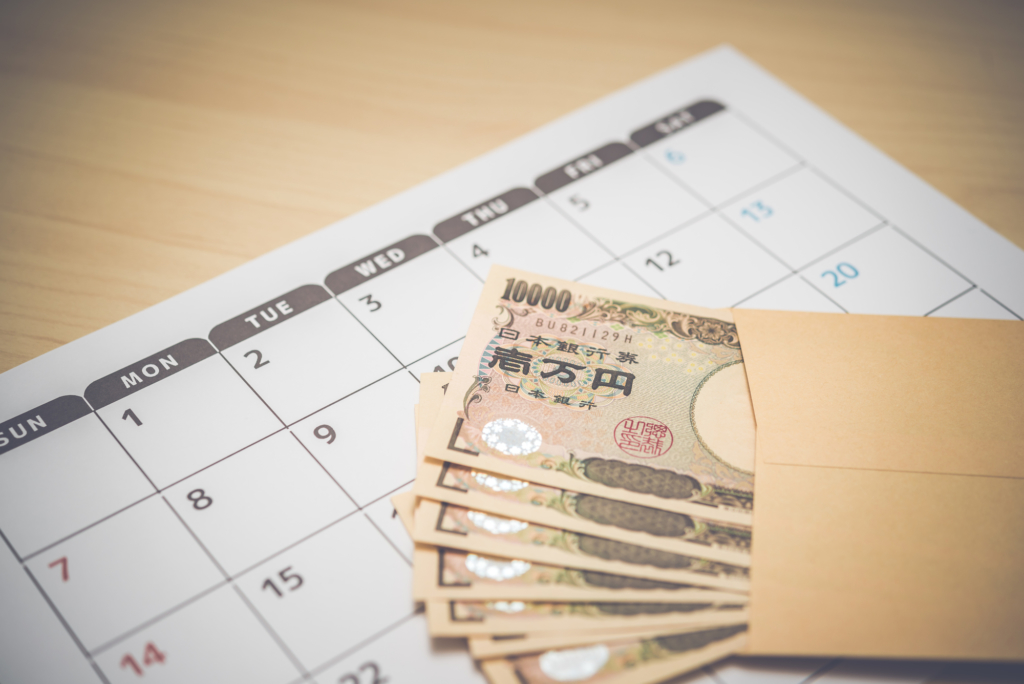Looking for some extra cash, new experiences, and self-improvement? Taking on a part-time job in Japan is a great way to achieve all three! And with the Japanese part-time job market bursting with vacancies, now is a better time than ever to start applying! But what types of part-time jobs can foreigners actually get in Japan? From paychecks to visa restrictions, we’ll cover everything you need to know about the part-time job scene in Japan. Don’t start looking until you’ve read this article!
Part-time Jobs in Japan and How Foreigners Fit In

Up until fairly recently, more and more Japanese people were moving from full-time into part-time jobs. In 2019, more than a third of workers in Japan were part-time or non-permanent, a sharp increase from just two years ago. According to a survey performed by The Ministry of Health, Labor and Welfare in the same year, the reasons for this trend included workers wanting to supplement their incomes, work less hours, and have work that fit better into their lifestyles.
So, where do foreigners fit in?
According to the Statistics Bureau of Japan, the population of Japan will decrease from 126 million to just 90 million by 2060. This has forced even the most conservative businesses to reach out to foreign applicants in order to survive. Between 2007 and 2019, the number of foreign workers in Japan has more than tripled, and the new Specific Skills visa has opened the door for this trend to continue. This means that the possibilities for foreigners to work part-time jobs in Japan are set to increase. Already, it is not uncommon to spot people from across the globe working jobs once exclusively held by Japanese citizens, especially in more cosmopolitan cities like Tokyo and Osaka.
Can Foreigners Work Part-Time in Japan?

Those with the following visas are generally free to work any number of part-time jobs in Japan:
- Spouse or Child of Japanese Nationals
- Long Term Residents
- Permanent Residents
- Spouse or Child of Permanent Residents
- Working Holiday (restrictions and conditions may apply)
Those on a student visa can also apply for permission to work part-time with the Ministry of Justice. Fill out the Application for Permission to Engage in Activity Other Than That Permitted Under the Status of Residence Previously Granted (資格外活動許可申請書) and present it to the Immigration Office along with your passport and residence card. You can also submit the paperwork at the airport just after landing in Japan for the first time. If permission is granted, students can work up to 28 hours a week while enrolled in school. There are certain restrictions on where students can work, including bans on bars, pachinko arcades, massage parlors, or other places deemed “immoral.” If it looks slightly sketchy, don’t do it!
Those on dependent visas can also apply for permission to work part-time. The form and application procedure is identical to the student visa.
Those with specialized visas can work part-time jobs as long as it remains within the scope of their visa. For example, someone holding an Engineer/Specialist in Humanities visa won’t be able to work in a restaurant. You can confirm your visa type on the STATUS (在留資格) section of your zairyu card (在留カード) and search for restrictions online or with the Ministry of Foreign Affairs of Japan (03-5501-8431, Japanese-only). You can also find more details about visa types and restrictions here.
Why Do Foreigners Get Part-time Jobs in Japan?

Extra Cash – While part-time jobs can be low-paying, they’re a great way to pocket some extra funds. As 24-hour services are common in Japan, such as the ubiquitous combini, it’s easy to find a job to suit your hours and supplement your income.
Language Skills – If you want to make leaps and bounds with your Japanese language skills, there’s no better way than to dive headfirst into a part-time job. While you may struggle at first, you’ll find yourself racing ahead of those who work in their native language.
Cultural Knowledge – For many expats in Japan, work exists inside a bubble separate from the rest of the country. If you want to cross over and see the real Japan, warts and all, there’s nowhere better than behind the counter of a store or in staff rooms.
Less Pressure – Casual contracts allow you to avoid much of the pressure and stress associated with working in Japan. While it depends on the company, part-time workers are usually free to clock out the moment their shift ends and won’t have to memorize as much information as full-time workers. This makes part-time work a great way to dip your toes into Japanese business culture without jumping off the deep end.
What Kinds of Part-Time Jobs Can Foreigners Get in Japan?

The following are the most common part-time jobs you’ll encounter in Japan. We’ve broken each down into where you’ll find the job, the level of difficulty (including common issues associated with the industry), the Japanese level, and the pay. This list is based upon general trends and common knowledge within the local expat community, and your own experience may vary.
■ English Teaching

Where: Part-time at an eikaiwa school, kindergarten, private tutoring, or online.
Difficulty: Easy for those with teaching experience and newcomers alike.
Japanese level: None to low
Pay: Moderate to high
■ Retail
Where: Department stores, drug stores, supermarkets, souvenir shops, fashion outlets, boutiques, specialist stores, etc.
Difficulty: Learning about the stock, payment methods, and how to use the register may take time and practice. Work hours can be convenient, but weekend shifts are common. Learning keigo (polite Japanese) is difficult and the “customer is god” culture can take some getting used to.
Japanese Level: Intermediate to high
Pay: Low to moderate
■ Convenience Stores (Conbini)

Where: Convenience stores all across Japan.
Difficulty: Can be difficult if you’re not that great at Japanese. Learning about the stock, payment methods, and how to use the register may take time and practice. Likely to encounter difficult customers. Hours may be undesirable, but are generally flexible.
Japanese Level: Intermediate
Pay: Low
■ Supermarkets

Where: All across Japan.
Difficulty: Plenty of opportunities behind the scenes cleaning, stocking shelves, or even prepping bento (ready-made meals). If you know some keigo or the supermarket doesn’t have much staff, you may have to man the register, which can be difficult if you’re not good with people or Japanese. Learning about the stock, payment methods, and how to use the register may take time and practice. Hours are generally flexible.
Japanese Level: Low to intermediate
Pay: Low
■ Restaurants and Cafes

Where: All across Japan but with a much higher concentration in metropolitan areas.
Difficulty: Plenty of opportunities for easy kitchen work and cleaning. Serving customers takes additional Japanese proficiency. International restaurants and cafes (e.g. Spanish, Italian, and Indian) are more likely to hire foreigners with little Japanese skill, especially if you are the same nationality.
Japanese Level: Low to intermediate
Pay: Low
■ Izakaya/Bars/Pubs

Where: All across Japan.
Difficulty: Learning about the stock, payment methods, and how to use the register may take time and practice. Hours are often undesirable, with work at night and on weekends and public holidays. Peak times can be extremely stressful and customers can be difficult, especially when drunk. People with certain visas, such as those on student visas, are unable to work these jobs.
Japanese Level: Intermediate to high
Pay: Low to moderate
■ Hotels, Inns, Guesthouses

Where: Generally around train stations/airports at major tourism or business hubs.
Difficulty: Different tasks require specific knowledge, however, basic checking in/out, cleaning, and organizing bookings are generally straightforward. For those with low Japanese ability, work behind the scenes cleaning rooms and helping in kitchens is readily available. Multilinguals are highly valued.
Japanese Level: Low to high
Pay: Low to high
■ Call Centers

Where: All across Japan.
Difficulty: Depending upon your task, working in a call center can range from high-stress, high-pressure to simply reading from a script with ample downtime. Fluent Japanese is often required.
Japanese Level: High
Pay: Low to moderate
■ Factories

Where: Often in outer suburbs, regional towns, or ports. Most common jobs include food processing, packaging, shipping, and product testing.
Difficulty: Work is often physically demanding, but is generally easy. No customer service is required.
Japanese Level: Low to intermediate
Pay: Low to moderate
■ Uber Eats and Other Delivery Services

Where: All across Japan, mostly in densely-populated areas.
Difficulty: Physically demanding but simple work. Difficulties in locating addresses and communicating with customers, restaurants, and headquarters can arise. Most require your own transport. Compensation is often unstable and based upon a per-delivery reward system.
Japanese Level: Low to intermediate
Pay: Low to moderate
■ Driving

Where: All across Japan.
Difficulty: Requires a Japanese driver’s license, driving experience, and a deep knowledge of the Japanese road system. Also requires an additional Ordinary Vehicle Class 2 Driver’s License, which is offered by some companies as part of training. Work hours can be long and inconvenient, and difficulties locating addresses and communicating with customers may arise.
Japanese Level: Intermediate to high
Pay: Moderate to high
■ Modeling

Where: Mostly in Tokyo, Osaka, and other fashionable areas.
Difficulty: Ranges from extremely easy with little required knowledge to a deep understanding of the fashion industry and refined talent. Work can be tedious, and finding decent gigs requires insider contacts. Those with talent and drive can become extremely successful. Workload is inconsistent.
Japanese Level: None to low
Pay: Low to high
■ Seasonal Jobs

Where: Rural towns, farms, tourist hubs, ski fields, etc.
Difficulty: Usually simple and enjoyable work, but there are also some black companies underpaying and providing inadequate work conditions. This is particularly true for farming jobs, where the work itself can be intense and tiresome. Workers will often have to leave their homes and stay in accommodation.
Japanese Level: None to low
Pay: Low to moderate
■ Writer/Content Creator

Where: Large cities, interesting places, or anywhere online.
Difficulty: Supply often outweighs demand – you’ll need to be an exceptional creator to stand out. May include making out-of-pocket payments on equipment and travel to get ahead. Once you establish yourself, work can become consistent and well paying. In addition, the better your Japanese skill, the more opportunities will become available. Content creation is all about selling yourself.
Japanese Level: None to high
Pay: Low to high
What Online Part-Time Jobs Can Foreigners Get in Japan?

With the events of 2020 and 2021 in mind, now is a better time than ever to consider part-time online work. Demand for online services is greater than ever before! Here are some common online part-time jobs you can find in Japan:
- Online English teaching
- Blog writing (travel, commentary, expat life, news, entertainment, how-tos)
- Copywriting
- Translation
- Design (graphic, marketing, website, animation, video)
- Photography
- Programming
- Exporting (buying Japanese goods and selling them overseas)
How Can I Get a High-Paying Part-time Job in Japan?

As a general rule, part-time and high-paying don’t equate! However, some part-time jobs undoubtedly pay better than others.
Generally speaking, jobs that almost any Japanese person can do, such as working at a conbini or restaurant, pay poorly and can be high-stress. If you desire higher pay, capitalize on your unique skills and work as a part-time language teacher, driver, guide, writer, content creator, model, actor, programmer, translator, etc. These jobs are harder to find and more competitive, so you’ll have to steadily build up a reputation or portfolio and network before getting your dream paycheck. If you’re after an easy-to-find, well-paying gig with high demand, becoming a part-time English teacher is your best bet.
How to Find a Part-time Job in Japan as a Foreigner
The best place to find a part-time job in Japan is online, either by searching in English or Japanese. For local jobs, entering “area name アルバイト” should bring up a vast selection to browse through. In addition, many shops and restaurants still display 募集中 (staff wanted) signs on their windows or walls, so wandering through your local shopping centers to find jobs the old-fashioned way is another sure-fire method.
Why Not Try Working in Japan?
Contrary to popular belief, there’s way more variety to the types of part-time jobs expats can pursue in Japan. Part-time jobs can be a great way to dip your toes into Japanese culture while supplementing your income. Now that you’ve read this article, you’re well equipped to conquer the part-time job market in Japan. Good luck – we’re rooting for you!
If you want to give feedback on any of our articles, you have an idea that you’d really like to see come to life, or you just have a question on Japan, hit us up on our Facebook!
The information in this article is accurate at the time of publication.


